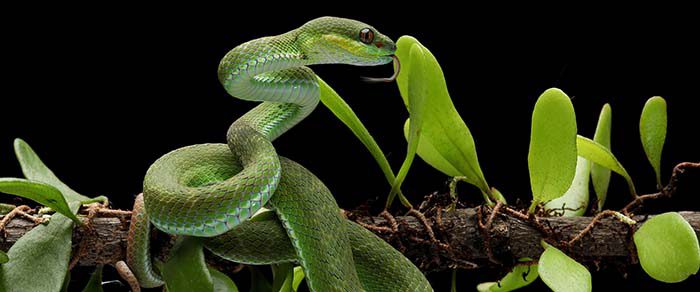Harnessing Camelid Antibodies as Next-Generation Treatments for Snakebites

The lowdown on venomous snakes
There are around 3,000 different species of snakes, of which approximately 600 are venomous. Among these, about 200 pose a threat to human life, including the black mamba, boomslang, and carpet viper, as well as the puff adder, inland taipan, and spitting cobra. Snakebite hotpots include sub-Saharan Africa, tropical Asia, and Latin America, where deaths attributed to snakebites can reach tens of thousands annually. This mortality rate is far higher than that of Australia, which is renowned for the diversity of its highly venomous snake population yet sees on average just two snakebite deaths per year. A main reason for this contrast is that socio-economic conditions and development levels vary dramatically between different geographies.
Treatment options for snakebite can vary based on geography
With most incidences of snakebite occurring in poorly developed regions of the world, treatment is often rudimentary. For example, in certain areas of sub-Saharan Africa, traditional healers are still seen as the primary caregivers, although a growing number of these individuals is likely to refer snakebite victims to hospital2. When a patient reaches an official healthcare provider, their only option is to be treated with a conventional anti-venom. These are produced by immunizing animals (usually sheep or horses) with low doses of snake venom and extracting the resultant antibodies from the serum. While anti-venoms have proven to be effective, they have several known limitations, not least their high cost. This can propagate poverty in poorer areas of the world, such as through forcing families to sell livestock to pay for snakebite treatments, yet not undergoing treatment risks death or long-term disability.
Limitations of conventional anti-venoms
Provided the snake species has been correctly identified, the patient reaches a healthcare facility quickly, and the facility is stocked with the right product, treatment with anti-venoms can be successful. For example, survival rates are relatively high among patients bitten by puff adders and various cobra species in sub-Saharan Africa. However, many types of snakebites still lack effective treatments. One reason for this is that anti-venoms simply haven’t been developed for certain snake species. Another is that anti-venoms have a high associated risk of causing adverse effects due to being produced in non-human hosts. This is especially the case for polyvalent anti-venoms (used for treating snakebites from multiple species), which often necessitate higher doses. In addition, anti-venoms require cold storage, which is not always readily available in the rural tropics, and can have poor efficacy due to the intrinsic complexity of snake venom.
Snake venom has broad-ranging effects
Snake venom consists of a multitude of toxin molecules. Some of these are cytotoxic, such as the enzymes phospholipase A2 (PLA2) and L-amino acid oxidase (LAAO), which are found in the venoms of most snake species and are being investigated for their potential utility as chemotherapeutics3. Others are hemotoxic, including many of the serine proteases, hyaluronidases, and metalloproteases found in rattlesnake venom, and are responsible for causing bleeding, tissue degradation, and necrosis4. Snake venoms can also exert neurotoxic, myotoxic, and/or cardiotoxic effects, as well as can cause blood vessel constriction (sarafotoxins).
Advantages of camelid antibodies for treating snakebites
Camelid antibodies hold vast promise as anti-venoms, mainly due to their small size (~15 kDa), which is approximately one-tenth that of a conventional antibody. This gives them several advantages, including lower immunogenicity, which can reduce the likelihood of adverse reactions, and greater stability, eliminating the need for cold storage. Camelid antibodies are also better able to access cells and tissues and are both cheaper and easier to produce since they can be synthesized in bacteria from large phage display libraries. As such, global healthcare organizations (including WHO) are investing in their development.
Next-generation anti-venom development
The development of next-generation anti-venoms requires the combined efforts of multiple research teams. While some groups are currently focused on characterizing snake venoms, including both their composition and the types of toxicities invoked by different venom constituents, others are engaged in optimizing camelid antibody performance. Work is also ongoing to generate proof of efficacy data for existing treatments, several of which have recently demonstrated poor in vitro and in vivo results despite being in use for a number of years. The ultimate goal is to produce novel anti-venoms more efficiently and at lower cost, thereby saving the lives of countless snakebite victims each year.
Supporting anti-venom research
Jackson ImmunoResearch specializes in producing secondary antibodies for life science applications. We offer an extensive selection of secondary antibodies conjugated to enzymes, biotin, and fluorescent dyes, including products for detecting camelid antibodies.
References
- https://www.who.int/news-room/fact-sheets/detail/snakebite-envenoming
- Steinhorst J, Aglanu LM, Ravensbergen SJ, et al. ‘The medicine is not for sale’: Practices of traditional healers in snakebite envenoming in Ghana. PLoS Negl Trop Dis. 2021;15(4):e0009298. Published 2021 Apr 16. doi:10.1371/journal.pntd.0009298
- Hiu JJ, Yap MKK. Cytotoxicity of snake venom enzymatic toxins: phospholipase A2 and l-amino acid oxidase. Biochem Soc Trans. 2020;48(2):719-731. doi:10.1042/BST20200110/
- Roldán-Padrón O, Castro-Guillén JL, García-Arredondo JA, et al. Snake Venom Hemotoxic Enzymes: Biochemical Comparison between Crotalus Species from Central Mexico. Molecules. 2019;24(8):1489. Published 2019 Apr 16. doi:10.3390/molecules24081489
